第10章
37.I have long ago done what you so often exhort me to do -diligently read and considered the several accounts of this doctrine given by the great author in different parts of his writings;any upon the whole I could never make it out to be consistent and intelligible.
I was even lead to say that"one would be inclined to think he was himself suspicious of the justness of his own demonstrations;and that he was not enough pleased with any one notion steadily to adhere to it.''After which I added,"This much is plain,that he owned himself satisfied concerning certain points,which nevertheless he could not undertake to demonstrate to others.''(See the seventeenth section of the'Analyst.')It is one thing when a doctrine is placed in various lights;and another when the principles and notions are shifted.When new devices are introduced and substituted for others,a doctrine instead of being illustrated may be explained away.Whether there be not something of this in the present case,I appeal to the writings of the great author -his'Methodus Rationum Primarum et Ultimarum,'his second lemma in the second book of his'Principles,'his'Introduction and Treatise of the Quadrature of Curves.'In all which,it appears to me,there is not one uniform doctrine explained and carried throughout the whole,but rather sundry inconsistent accounts of this new Method,which still grows more dark and confused the more it is handled:
I could not help thinking,the greatest genius might lie under the influence of false principles;and where the object and notions were exceedingly obscure,he might possibly distrust even his own demonstrations."At least thus much seemed plain,that Sir Isaac had sometimes owned himself satisfied,where he could not demonstrate to others.In proof whereof I mentioned his letter to Mr.Collins;hereupon you tell me:there is a great deal of difference between saying,I cannot undertake to prove a thing,and I will not undertake it.''But,in answer to this,I desire you will be pleased to consider that I was not making a precise extract out of that letter,in which the very words of Sir Isaac should alone be inserted.
But I made my own remark and inference from what I remembered to have read in that letter;where,speaking of a certain mathematical matter,Sir Isaac expresseth himself in the following terms:"Is is plain to me by the fountain I draw it from,though I will not undertake to prove it to others.''Now,whether my inference may not be fairly drawn from those words of Sir Isaac Newton,and whether the difference as to the sense be so great between will and can in that particular case,I leave to be determined by the reader.
38.In the next paragraph you talk big but prove nothing.You speak of driving out of intrenchments,of sallying,and attacking,and carrying by assault;of slight and untenable works,of a new-raised and undisciplined militia,and of veteran regular troops.Need the reader be a mathematician to see the vanity of this paragraph?After this you employ (p.65)your usual colouring,and represent the great author of the Method of Fluxions"as a good old gentleman fast asleep and snoring in his easy chair;while Dame Fortune is bringing him her apron full of beautiful theorems and problems,which he never knows or thinks of.''This you would have pass for a consequence of my notions.But I appeal to all those who are ever so little knowing in such matters,whether there are not divers fountains of experiment,induction,and analogy,whence a man may derive and satisfy himself concerning the truth of many points in mathematics and mechanical philosophy,although the proofs thereof afforded by the modern analysis should not amount to demonstration?I further appeal to the conscience of all the most profound mathematicians,whether they can,with perfect acquiescence of mind,free from all scruple,apply any proposition merely upon the strength of a demonstration involving second or third fluxions,without the aid of any such experiment,or analogy,or collateral proof whatsoever?Lastly,I appeal to the reader's own heart,whether he cannot clearly conceive a medium between being fast asleep and demonstrating?
But,you will have it that I represent Sir Isaac's conclusions as coming out right,because one error is compensated by another contrary and equal error,which perhaps he never knew himself nor thought of:that by a twofold mistake he arrives through not at science yet at truth:that he proceeds blindfold,&c.All which is untruly said by you,who have misapplied to Sir Isaac what was intended for the Marquis de l'Hospital and his followers;for no other end (as I can see)but that you may have an opportunity to draw that ingenious portraiture of Sir Isaac Newton and Dame Fortune,as will be manifest to whoever reads the'Analyst.'
39.You tell me (p.70)if I think fit to persist in asserting"that this affair of a double error is entirely a new discovery of my own,which Sir Isaac and his followers never knew or thought of,that you have unquestionable evidence to convince me of the contrary,and that all his followers are clearly apprised that this very objection of mine was long since foreseen,and clearly and fully removed by Sir Isaac Newton,in the first section of the first book of his'Principia.'''All which I do as strongly deny as you affirm.And I do aver that this is an unquestionable proof of the matchless contempt which you,Philalethes ,have for truth.And I do here publicly call upon you to produce that evidence which you pretend to have,and to make good that fact which you so confidently affirm.And,at the same time,I do assure the reader that you never will,nor can.